The true story may surprise you?
There are some spectacular homes in Catalonia and there are many properties which are bought for rental as an investment.
Should I buy a property with the Inheritance I have just received?
By Barry Davys
This article is published on: 29th July 2023

If you are coming from a home owning country such as the UK (63% homeowners in 2020)¹ or Romania (a remarkable 92.9% homeowners in 2021)², it is only natural to think of property as a good idea. We may have experienced significant gains on a property and we probably know others who have done so. Most of these cases will be people who have bought their property as a home. We may have also seen the headlines about the “Buy to Let” boom in the UK. Bear in mind the boom was helped by very, very low interest rates which are most unlikely to be repeated.
Now we are seeing headlines such as ‘Lots of us are very anxious’: why Britain’s buy-to-let landlords are selling³. A reminder that like most investment markets the value of your investment can go down as well as up.
Investing in property can be effective. It should be considered like any other investment and not with the bias in our decision making that can come with having been brought up in a home owning country.
Here we help you to view an investment in property in Catalonia with data.
The first item to understand is that there is a property purchase tax of 10% of the purchase price. Other costs, such as lawyers and notary fees, are typically total 2% of the purchase price. This is an assessment of the impact of costs and taxes and what it can do to your investment return.
¹www.gov.uk – Home ownership
²European Union (Euro Stat) Home or Flat – Owning or renting
³Guardian newspaper 24/02/2023
| The true cost of a house for renting in Spain | Return on investment | ||||
|---|---|---|---|---|---|
| % | % | % | |||
| Purchase tax | 10.00 | Annual yield Barcelona | 5.7 | ||
| Lawyers, notary etc | 2.00 | Less | |||
| Property registration fee | 1.5 | Tax at say 33.8% of 5.7% | 1.93 | ||
| IBI (council tax) | 0.6 | ||||
| Landlord insurance | 0.5 | ||||
| Total cost of buying | 13.50 | Community charge | 0.3 | ||
| Furnishings and white goods | 0.75 | Total ongoing costs | 3.33 | ||
| Total Costs | 14.25 | Annual Net Return | 2.37 | ||
| Number of years to recover cost of purchase | Total Costs ➗ Annual Net Return | = | 6.01 |
In summary, total acquisition costs are typically 14.25% of the purchase price. The buyer has to have this amount of cash in addition to any deposit as the mortgage is based on the value of the property.
The rental property rate of return (yield) is shown for Barcelona. Anywhere outside of Barcelona will likely give you a lower rate of return.
Annual net returns after ongoing taxation of property tax (IBI) and income tax (rental income is added to employment income). The example uses a tax rate of 33.8% income tax on your rental but the top rate of income tax in Catalonia has recently risen to 50%.
This means it will take you just over 6 years to cover your costs from rental income.
Of course, with a bit of luck, the property will increase in value. There is an oft repeated mantra that “Oh but the property will increase in value”. It may well do, especially if you keep the property for many years. However, here are some other points to be aware of before buying a rental property for profit.
- You benefit from the increase in value when you sell the property
- Yet the true benefit is only the increase in value above inflation; not the difference in buying price and selling price but only the bit of profit above the revised value caused by inflation
- Capital gains tax is payable on the increase in buy to let property value, even if you are over 65. Inflation is not taken into account by the tax man so you pay tax on the full difference between buying and selling
- Capital gains tax in Catalonia is between 19% and 26%
- Estate agent fees in Catalonia are typically 5% of the sale price
- A further tax is called Plus Valor. Raised by the local council the tax is based on the increase of the value of the land that the property is built on. This applies to freehold properties too
- The property is part of the assessment for Inheritance Tax in Catalonia even if you return to the UK or your home country
Property investment works best when expectations and reality are matched. Knowing realistic figures, based on data, is very important. We hope that this article provides some insight and helps you with your assessment of whether it is right for you.
Are there alternatives? There are and one or two that are very tax efficient. In some cases a combination of property and other investments can work well.
For more information on these elements of investing in property in Catalonia you can book a call with the author Barry Davys. Please use his online system so you can choose a time that is convenient for you for the call. The call can be a video call or a telephone call.
Thinking of retiring to Spain?
By Jeremy Ferguson
This article is published on: 27th July 2023

If like many people, you’ve become hooked on life in Andalucia whilst here on holiday from the UK, what is the reality of retiring here, and what considerations need to be taken when looking at it seriously?
Since Brexit things have changed somewhat with regards the hoops to jump through to obtain residency, and nearly all of the clients we work with have had to apply firstly for permission to live here full time if they are UK passport holders.
The most common route is to apply for a non Lucrative Visa, and all of the information you need for this can be found at www.upsticks.es Essentially you will have to make your application through a Spanish Embassy in the UK, supplying them with financial information, criminal record checks and proving you have the necessary private health care in place amongst others. This can take a few months and having someone like Upsticks do this for you takes away nearly all of the pain.
This is just the first part of the jigsaw, and you will need to make very careful plans with regards the timing of your arrival if you are selling assets in the UK, typically this is your home, as well as thinking about whether to take pension benefits and what to do regarding your other assets. The most obvious is making sure you take your pension commencement lump sum as a UK tax resident by nature of the fact this is tax free when living there. If you did this after moving to Spain and becoming a tax resident, this would no longer be tax free and would attract income tax here, so it makes perfect sense to deal with this as part of the overall planning for your move.
Then there is the issue of selling your UK home, as if you are deemed a tax resident of Spain in the year in which it happens, there can be Spanish capital gains tax applied to the ‘profit’ you have made when selling. If this is your main home, and you sell when a tax resident of the UK then we all know this doesn’t attract capital gains tax, so to get the timing wrong when moving here and falling into that trap is normally the most important element to plan.

If you have ISA’s in the UK and they are in profit, then again realising these whilst a UK tax resident is tax free. If you held onto these investments and sold them after becoming tax resident here, the profits will attract capital gains tax. In many circumstances it can make sense to realise the profits before leaving the UK, and then make alternative arrangements when you get here. There are options available for tax efficient in- vestment products here, but it is important you are fully versed in the pros and cons of these be- fore doing anything.
Nearly all of my time at the moment is taken up with helping people plan their relocation carefully, so when they get here everything is done in the most tax and cost efficient way possible. With anything like this, my favourite expression is ‘relocating is like eating an elephant, it has to be done a mouthful at a time’.
We have a useful guide on our website which deals with relocating to Spain in more detail, and this can be downloaded at spectrum-ifa.com, If you are considering a new life in Spain, please do not hesitate to get in touch so we can help you every step of the way. For most people the reason they want to move here is for a less stressful life, so making sure you take the right advice is critical to helping this happen.
Comment mieux diversifier votre patrimoine
By Cedric Privat
This article is published on: 21st July 2023

“Bien épargner” aura une signification différente pour chacun; selon votre horizon de placement, vos priorités, votre profil de risque, votre situation familiale, etc.
L’Ipsos nous apprend que seul 24 % des Français déclarent épargner en vue de la retraite.
L’immobilier et les actifs prudents (livrets, support en euros de l’assurance-vie) sont très largement majoritaires et représentent plus de 80 % des actifs détenus par les ménages français.
Dans un contexte de forte hausse de l’inflation et de remontée des taux d’intérêts, diversifier son patrimoine semble désormais impératif.
Cette problématique est d’autant plus importante si vous travaillez en Espagne, la retraite y étant largement inférieure à la retraite française. Selon la “Seguridad Social”, la retraite moyenne en Espagne est actuellement de € 1’193.
Pourquoi diversifier votre épargne?
Hormis votre épargne de précaution (3 mois de salaire), laisser une partie importante de vos liquidités sur des comptes bancaires s’avère être un risque car vous perdez du pouvoir d’achat face à l’inflation.
Différentes diversifications sont possibles telles:
- Le type de produit
- L’impact fiscal
- L’horizon de placement
- Le risque
- Les zones géographiques
- Les devises
Le but étant de réduire le risque et d’optimiser la performance sur le moyen et long terme.
Les options: de la plus sage à la plus risquée
- Monétaire: Livret A & comptes bancaires rémunérés
- Obligations: dettes d’un État ou d’une entreprise à qui vous prêtez et qui vous doit des intérêts
- Immobilier: résidence principale, secondaire, ou locative
- SCPI: immobilier locatif via un placement collectif (pierre papier)
- Actions: vous possédez des parts de sociétés via un investissement en bourse
- Spéculative: matières premières, montres, voitures, Crypto, Art, etc.
Le risque de chaque fonds (actions, obligations, immobilier…) est calculé sur une échelle de 1 à 7. (Indicateur Synthétique de Risque)

L’assurance-vie
L’assurance-vie est le premier moyen d’épargne en France. On le surnomme le « couteau-suisse » indispensable des épargnants.
Les risques encourus par l’assuré varient selon le support choisi : les contrats souscrits en euros bénéficient d’un capital garanti, alors que le capital des contrats en unité de compte ou en action varie en fonction des marchés. Il est également possible d’investir dans l’immobilier.
Une assurance-vie « multisupport » permet de se construire un portefeuille diversifié et adapté à la situation de chacun.
Les gains accumulés ne sont pas imposés tant qu’un rachat vers votre compte bancaire n’est pas activé.
Vous pouvez retirer de l’argent quand vous voulez mais un rachat les premières années peut entrainer une fiscalité plus lourde ou des frais de sortie anticipés.
Aucun investissement ne peut offrir à la fois un bon rendement, aucun risque de perte en capital et une bonne liquidité. Il est important au préalable de mettre en place une stratégie patrimoniale afin de s’adapter à sa situation, son profil de risque, calculer les sommes allouées pour une épargne court/moyen/long terme et préparer/chiffrer son avenir, coûts futurs et sa retraite.
Le groupe Spectrum à Barcelone se propose d’étudier gratuitement votre situation afin de vous aider, de vous conseiller, de vous orienter ou de vous guider dans vos démarches patrimoniales.
N’hésitez pas à nous contacter afin d’obtenir les réponses d’un professionnel aux questions que vous vous posez.
0% tax when selling your UK business
By Barry Davys
This article is published on: 20th July 2023

How you structure the sale of a business is always important. And never more so when you make an opportunity to move to Spain and then sell your business. Spain has a scheme to attract foreign workers, professionals and entrepreneurs with tax incentives.
This scheme can lead to 0% tax on the sale.
So unsurprisingly, moving to Spain is becoming an increasingly popular option.
Before inviting you to discuss the scheme, it is important to show how I help business people in this situation with their wealth planning. In addition to the 0% tax scheme there is greater depth to the planning. Will you live happily ever after? Well let’s see.
Selling a business is often a life changer. You have more time. You are not with the same people that you have been with for, in some cases, years. You suddenly have a large bank balance. And you spend time wondering what comes next in life?
I cannot help with the “what comes next?” question but I do help people get their affairs in good order so they can move forward.
My experience of working with people who have sold a business gives me insight into what things are important financially after a sale. Having sold a business myself I also have an understanding of the feelings that appear after the sale about the new found wealth.
The bank balance
The warm feeling that comes with looking at a new, very much bigger than normal, bank balance is great. It is a sense of achievement and reward for all the work you put into building your business and sacrifices you made along the way.
This feeling makes us focus on the figure on the bank statement. However, if we have sold at 55, with average life expectancy, we could live for another 30 years; longer if you are a woman. Life expectancy, as a result of medical advances, means we might well live even longer.
The secret to dealing with this bank balance focus is to check your answers to these questions:
- Have I just lost my salary?
- Have I just lost my dividends?
- Do I want to work anymore?
- How much do I need to live on if I don’t work?
- Will I run out of money?
These questions help us take the focus away from the big, juicy bank balance to the reality of providing an income for the next 30 years.
Question five may seem a strange question having just received a payment for the sale. It is actually an important one. The large bank balance typically tends to lead to big purchases; a car for husband and wife, a new house, helping or buying a house for children, a boat, gifts to other members of the family etc.

All these purchases and gifts have one thing in common. Not one of them produces an income!
Another common action is to invest in another business. I have seen time and time again, and I have been guilty of this myself, of investing in a company in a completely different sector, or perhaps B2C when your business was B2B. It can be a very expensive mistake to think “I know about business/marketing/retailing/manufacturing” etc and then investing in a different type of business.
What made our business successful was our ingrained experience of our sector and market, our knowledge of our suppliers and competitors and our customer needs. Moving to a different type of business for investment can render all that experience irrelevant. The assessment of the investment opportunity can be skewed by thinking we can rely on our experience.
So what should we do?
Post sale action
Secure your income first and then buy the toys, make further investments and make the gifts. But how do you do that when the future is unknown? By using some of the very best cash flow modelling software it is possible to show you. With inputs that are specific to you. With real data on portfolio performance including what happened during the financial crisis and the pandemic. Graphical output shows in real terms how to generate your income and what you could spend on other things.
For more information on how the modelling can work for you, book a call, in confidence, with the author Barry Davys, The Spectrum IFA Group, at a time that is convenient for you on his online system.
The earn out
I often hear people who are selling say “and I am due a further sum of X in Y years”. It is considered as the ‘cherry on the top’ part of the deal even when it is contingent on hitting a future target. We can’t help but include it in our “How much am I worth?” calculations in our head, even though it is contingent on a target that we have no control over (loss of control is a function of selling the business).
The modelling helps with this issue too. A model with zero return from an earn out period in a contract allows you to plan with the resources you have available now. A second model is provided showing receipt of the further payment when it becomes clear the payment will be made. This second model can account for any and all of the following:
- Earn out period
- Retained shareholdings
- Loan notes
- Tax rebates
Your pension
As we have been building the business we may have thought of pension contributions as a way of managing corporation tax, personal income tax or both. The pension pot itself is generally viewed as ensuring you have a comfortable retirement.
Now you have (or will have) a larger amount of wealth outside your pension it can be very beneficial to use this non pension wealth to provide your income in retirement. Firstly, it is possible in Spain to provide you with an income with a lower tax rate than applies to a pension. This gives you income that lasts longer into your retirement, allows you to have a better standard of living, or both!
Your pension pot then becomes one of the most effective IHT planning tools at your disposal and it is already under your control.
Inheritance tax in Spain
Inheritance tax in Spain is less about where you are living and more about your connection to the UK and also where your children live. Connection to the UK because even if we leave the UK a long time before death, we are generally considered to be “Domiciled” in the UK. Domiciled has a specific definition in the UK allowing HMRC to claim inheritance tax from an estate no matter where you die
Where you children live is important because they are the taxable entity, not your estate, for inheritance tax in Spain.
The importance of inheritance tax planning increases significantly after the sale of a business. It may be that you have previously qualified for family business exemptions on inheritance tax in both Spain and the UK. This was granted based on your shareholding in the company. Now the business has been sold, the exemption disappears.
Relatively simple planning can give outstanding results in reducing the amount of inheritance tax due in Spain.
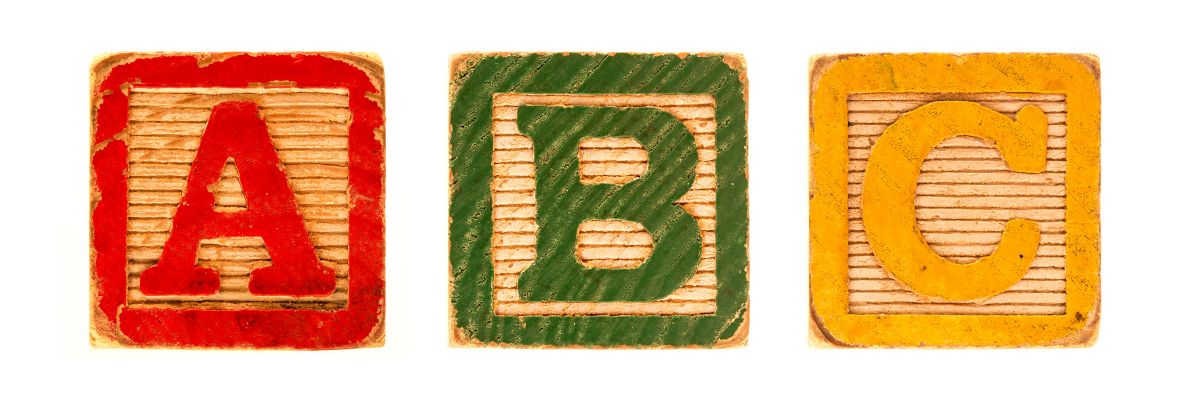
Don’t forget the basics
Our feeling of abundance pushes the basics from our mind. However, there are a few basics that we should attend to post sale and which we will then not have to worry about again. This attention often means tax savings and reduction in expenditure.
Life Assurance
Have you had life assurance provided by your business? Has that now disappeared? Do you still need life assurance if you now have a large capital sum? Do you have life cover taken out in your personal name?
When advising people on the post sale process these are the sorts of questions we address. In one recent post sale example my advice saved a husband and wife £400,000 EACH in potential inheritance tax.
Private medical insurance and income protection insurance
Were either of these insurances paid for by your company? Do you need to replace or update an existing policy and especially so when you move to Spain?
Income protection insurance will pay you an income if you cannot work. However, with the loss of earnings as a result of the sale these types of policies become void. The good news is that by addressing the income issue first in your planning, you are already meeting the need for income. The policy is no longer needed and so there is a cost saving from not having to pay the insurance company a premium.
Where next?
It is especially important that planning post a sale is broad enough to look at your overall situation and not be focussed just on the 0% tax or how to invest the sale proceeds. People have also found that continuing advice brings better outcomes for the family and ongoing piece of mind.
Of course, the 0% tax is very important and so I discuss this as part of the planning of the sale of your UK business in detail. To arrange a meeting or call please use this link to choose a time that is convenient for you to find out more about the 0% tax scheme and wealth management for you and your family.
However, perhaps you’re not interested in a holistic financial approach. If you believe investing is just about picking the right stocks or funds and have no interest in considering your complete financial picture – including tax strategies, estate planning, retirement goals, and risk management – I must admit, my comprehensive approach won’t be your cup of tea.”
Barry Davys MBA Dip PFS
Partner, Spectrum IFA Group
Building your portfolio after selling a business
By Barry Davys
This article is published on: 19th July 2023

Travel broadens the mind, and the investment portfolio
Have you ever been to India for work or to travel?
I haven’t but my partner went for work and my daughter for travel. Some seven other friends have also travelled and all have reported the same way. It is a great place, still lots of improvements to be made, but the people work hard and are generally friendly.
With a current population estimated at 1.46 billion (now larger than China’s), India accounts for around 18% of the world’s total population.
If you were running a business with:
- 18% of the world’s population in your home market
- English being spoken well by a good proportion of the population and with English language ability providing valuable access to international markets
- skilled and hard working employees
Would you be mildly optimistic about your outlook? Of course, you would have to deal with the day to day issues of logistics, marketing, financing etc but even so, you might still be mildly optimistic.
The story is only just beginning. Yours and my parts of this story come at the end of this article. Read on.
The IMF, World Bank and Goldman Sachs are all optimistic about the country’s outlook. India is currently the fifth largest country by size of economy. However, by 2050 Goldman estimates it will be the third largest in the world. Sounds good but when you examine the numbers it really is impressive.
In 2022 the Indian economy was valued at $3.385 trillion. Goldman expects the economy to be $22.2 trillion by 2050. By 2075 it is anticipated it will be $52.5 trillion, making it the second largest economy in the World.
To give some context, the economic output (GDP) of some other countries in 2075 are estimated to be:
- USA $51.5 trillion
- Japan $7.5 trillion
- UK $7.6 trillion
- Germany $8.1 trillion

Your involvement in the story
Sounds good but what has this got to do with me?
If you are selling or have sold your business at, as an example, age 60, it is likely that you will live around 30 years. This change in India to 2050 will take place in your lifetime.
If you have children, and especially with grandchildren, this change in India to 2075 will take place in their lifetimes.
I am not an investment manager but am able to arrange for discretionary fund managers (DFMs) to run investment portfolios on behalf of my clients. I direct the DFM to invest in a manner that fits both with your attitude to risk and your longer-term planning objectives. This includes requirements for income and inheritance tax planning for your family.
I am forward looking. This story of India is not a recommendation to invest in India. It does illustrate however that if this economic expansion is expected to develop over your lifetime, we could ask the DFM to consider including at least some Indian exposure in your portfolio.
If you wish to look to the future, book an appointment for an initial call with Barry Davys at a time that is convenient for you, using his online system at Selling your Business
Sensible Inheritance Tax Planning
By Barry Davys
This article is published on: 17th July 2023
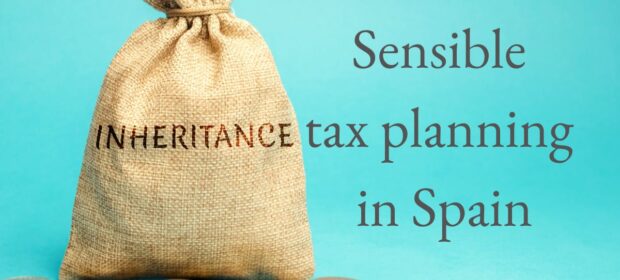
One of the principals of financial planning is to keep things as simple as possible. Often that is easier said than done. Often, trying to plan in the context of unknowns means we have to try to cover a number of options. Examples include what will future investment performance be, which country will you live in in the future, how many children and grandchildren will you have and indeed, how long will you live?
One piece of planning that is quite straightforward is a piece of planning for passing wealth onto your children when one lives in the UK and the other in Spain. As an example let’s use the family called the “Sensibles”:
- Mr & Mrs Sensible live in the UK
- Child Sam Sensible lives in Spain
- Child Una Sensible lives in the UK
- In Spain there is gift tax if money is given to Sam during Mr & Mrs Sensible’s lifetime
- In the UK, there is no gift tax
- In Spain, the recipient of money from a Will has to pay Inheritance Tax (IHT)
- In the UK, it is the estate of the person who has died that pays the IHT
- Mr & Mrs Sensible wish to do some UK IHT planning and give money to their children now
The problem for Mr & Mrs Sensible is that if they give money to their children now, this will lead to Sam in Spain having to pay Gift Tax now. If they leave their money to Sam in their Will there are allowances and discounts available which means that he will pay less tax than in the event of receiving a gift.
The Solution
The solution is quite straightforward. Mr & Mrs Sensible should give the total amount of money they wish to give to Una in the UK now. This will reduce their future liability to UK IHT. To make sure Sam and Una are treated the same they should then deduct the amount given to Una from her half in their Will.
- Sam pays no gift tax and Una pays no gift tax
- Sam pays less tax on the death of his parents because of the discounts available on IHT for bequests from parents to children
- Mr and Mrs Sensible have reduced their UK IHT bill
What a sensible thing to do.
Pensions in Portugal
By Portugal team
This article is published on: 13th July 2023

Taxation of pensions in Portugal is complicated. The type of pension, how it is funded and how it is paid out can affect the rate of tax you pay and it becomes even more confusing when you have to consider potential taxes in the source country. Mark and Debrah examine the rules on taxation and the steps you should take to save your hard-earned cash.
Over the years we have seen different ways of reporting pensions in Portugal. This is because the Portuguese rules do not quite fit the complex UK pension rules and there is also a lot of confusion, even amongst professionals, about the nature of pensions. Sometimes this results in a favourable outcome, but in other instances, we have seen people paying more tax than they need to.
What is a pension in Portugal?
Portugal views a pension as a regular series of income payments. This can get confusing as from a UK context, pensions can be paid out as a series of income payments or lump sums.
Portuguese law does not specify a time period for payments to be deemed a pension, but it is generally considered amongst professionals that payments made on predetermined dates and at predetermined amounts would be deemed pension income.
Ad hoc payments could be deemed lump sums and would receive different tax treatment (as long there were no employer contributions). Here, the growth element is taxed at 28% and the capital is returned free of tax. There is a tax reduction of 20% after 5 years and 60% after 8 years. It is best to speak to your accountant on reporting options as they will be performing your submission.
UK Government pensions
These pensions are acquired by working for the state. In the UK these are generally armed forces, local authority and some types of NHS pensions (a full list can be found on HMRC’s website).
These are always taxable in the source country and tax is deducted at source. Portugal does not tax these pensions, but they must be reported in Portugal, and they do count when assessing your other taxable income in Portugal.
All other pensions are taxable in Portugal (not the UK) and each person has an annual deduction of €4,104 against pension income
UK state pension
The UK state pension is taxable in Portugal only. No tax is due in the UK. The pension can be paid out free of tax to you from the UK once HMRC are satisfied you are no longer a UK resident. Otherwise, UK tax will be deducted at source and you must reclaim this.
For Non-Habitual Residents (NHR), the tax due in Portugal is 10% (unless you have pre 31st March 2020 NHR, in which case it is 0%). For normal residents, scale rates of tax apply which for 2023 are 14.5% to 48%.
Occupational pensions
These pensions are funded solely by an employer, or by employer and employee contributions from pre-tax income.
If you can determine the split between employer and employee contributions, the former are taxed at the prevailing rate and the latter can receive 85%/15% treatment i.e. 85% is returned free of tax and 15% is taxed at the prevailing rate. If this cannot be determined, the whole amount will be taxed at the prevailing rate of tax.
For NHRs, the rate is 10% (or 0% for pre-2020). For non-NHRs, it is the scale rates of tax.
Personal pensions
Where a personal pension was solely funded by personal contributions made with after-tax income, then it is possible to apply long-term savings taxation rules which can be more favourable. Here, only the growth element of any income received is taxed at 28%, with tax reductions after years 5 and 8 resulting in effective rates of tax of 22.4%and 11.2% respectively.
If there are contributions made in resect of employment activity e.g by an employer or via pre-tax income, then scale rates are likely to apply to the full pension, unless you can distinguish between the contributions.

What about the 25% PCLS?
Portugal does not recognise the UK concept of a 25% pension commencement lump sum. So, if your retirement plan is to take this, then it is best to do it whilst UK tax resident. If taken once resident in Portugal, the above tax rates will apply.
Get your UK pension paid out to you gross
Firstly, you must complete a ‘DT Individual’ form. This is available online from HMRC. You then submit this form to HMRC with a proof of residency in Portugal certificate, which you can obtain from the finances portal. You will need to take an income from the pension to trigger the process, which is likely to be emergency taxed so just take a small amount. Once your provider receives notification of a ‘nil rate tax code’ from HMRC they will pay your pension out to you without deducting UK tax.
What else should you be aware of?
The UK government recently changed the ‘lifetime allowance’ (LTA) rules. Contrary to the common belief that this has been ‘abolished’, the rules actually state that no charge will apply for 2023/24. This difference is important for those thinking of taking their pension benefits during this window of opportunity.
Previously the LTA was capped at £1,073,100. After which pension savings suffered a tax charge of 25% if taken as income or 55% if a lump sum. Lump sums were taxed more heavily as it assumed that 25% represented the LTA excess charge and a further 25% represented an income tax charge. The new rules remove the 25% LTA excess charge but not the 25% income tax charge, so when taking amounts above the LTA as lump sums, a 25% deemed income tax charge will still apply.
Either way, this provides a unique opportunity for those with large pension pots. This opportunity however is not guaranteed for the future as commentators believe that a Labour win in the next election will likely see this reinstated.
Lastly, currently, assets within a pension can be passed down free of UK inheritance tax (IHT) and they have become crucial planning tools for UK domiciles. Similarly, income tax is not payable by beneficiaries if the pension holder dies before age 75 (tax is payable if death occurs after 75).
There have been ever-increasing murmurings of the introduction of inheritance tax applying to pensions and income tax being imposed on beneficiaries where death occurs before age 75. The most recent and serious being at the end of 2022 when the Institute for Financial Studies published a report recommending changes to the rules and stating that these changes could bolster government funds by £1.9 billion.
It could be an opportune time for you to review your pension planning with this and your beneficiaries in mind.
Investment options for Portuguese residents
By Portugal team
This article is published on: 12th July 2023

You are probably quite au fait with your home country’s investment structures, options, and practices, but what happens when you move abroad? Just because your investments are tax efficient in one country does not mean that the tax advantages will transfer to another.
Mark Quinn and Debrah Broadfield look at the taxation of typically held investments in Portugal and what options are open to residents looking to legally shelter from taxation.
Bank accounts
All bank interest is reportable and potentially taxable in Portugal, irrespective of where the account is located or if you use it or not.
If you have Non-Habitual Residence (NHR), interest earned on foreign accounts is tax-exempt, unless the account is held in a blacklisted jurisdiction such as Guernsey, Jersey, or the Isle of Man, in which case it is taxed at 35%. So, if you are still holding large sums in these ‘tax havens’ you should consider restructuring this.
If you are a non-NHR, all bank interest earned on foreign accounts is taxed at 28%. Similarly, interest from Portuguese bank accounts is always taxed at 28%, irrespective of your NHR status.
Dividends
We usually see individuals with dividends paid from their own companies, directly held shares, or investment portfolios. This is a great source of income if you are a NHR as these are tax-free in Portugal during the 10-year period.
It is worth thinking about what you are doing with the income once received. If you are not spending it all and it is accumulating in a bank account earning little or no interest, you should consider investing this in a tax-efficient manner to get your money working for you.
For normal residents, dividends are taxed at 28% but there is the potential for tax savings if you can restructure.
Property
Foreign-sourced property income is reportable in Portugal but is tax-exempt during NHR. Post-NHR, this income is taxed at scale rates (up to 48% plus solidarity tax at 2.5%/5%) with a credit given for tax paid in the country where the property is located (if there is a double tax treaty).
NHR does provide a unique tax-saving opportunity when selling a foreign property. Usually, 50% of any gain on sale is taxed in Portugal at scale rates, but if sold during the NHR period there is no tax to pay. Do note however that tax may still be due in the country where the property is located.

Striving for tax efficiency
One of the most common and tax-efficient ways to save is within an ‘offshore investment bond’. Such structures are recognised throughout most of the EU and in the UK.
Unlike a standard investment portfolio, that attracts capital gains and income tax as it arises, gains within an investment bond grow free of both income and capital gains tax. This is also known as ‘gross roll up’ and works in a similar way to a pension or a UK ISA.
The other main advantages over directly held investments are:
– You can control the timing of taxation. With standard investment holdings, when income or dividends are produced, they are deemed paid (whether actually paid out to you or not) and are taxable on an annual basis. With a tax-sheltered structure, income and gains are only taxable when a withdrawal is made.
– Withdrawals are very tax efficient. Withdrawals are split into capital and growth and tax is only payable on the growth. Although the tax rate on the growth element starts at 28%, you enjoy a 20% tax reduction after 5 years and a 60% tax reduction after 8 years.
It is worth knowing that this preferential tax treatment is enjoyed by both NHRs and standard Portuguese tax residents. And because the structure becomes more tax efficient over time, these are great long-term planning tools for those with NHR who intend to remain in Portugal once they are subject to the standard rates of tax post-NHR, or for long-term residents without NHR.
– These structures offer a unique tax planning opportunity for those who might return to the UK in the future. Under UK rules, only investment growth generated whilst resident in the UK is taxable. So, for those who have spent many years abroad in Portugal, this can create the opportunity for very advantageous tax planning on a return to the UK.
Lastly, choosing the right jurisdiction and provider is essential to ensure compliance in Portugal. You will also want to avoid jurisdictions with withholding taxes and bonds located in tax havens, as these are punitively taxed at 35%.
Tax embargo in Spain for incorrect declaration of taxes
By Chris Burke
This article is published on: 10th July 2023
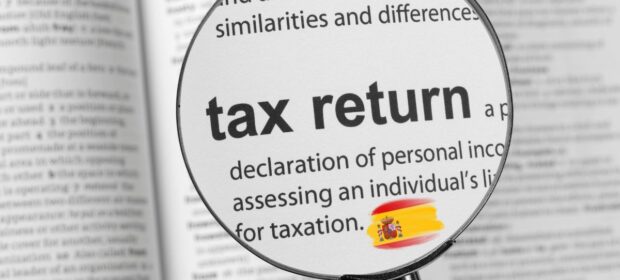
When moving to Spain you find out pretty quickly that the way things work here, bureaucratically and lawfully, are very different from the rest of the Western world, particularly the UK. One such example is if you are suspected of making an incorrect tax declaration or filing. Even if advised by your accountant/tax adviser to do so, you are liable and not them. In Spain, simply put, you are guilty until proven innocent of any suspected wrong doing.
With that in mind, one major example is of a self-employed person having their taxes filed incorrectly by their accountant and being unaware. At some point in the future the individual is notified that they have not responded to the tax office’s request to query this, and thus immediately have their income ‘embargoed’ and the monies they are suspected to owe are either taken from their Spanish bank account and/or taken at source from their main customers/invoices.
In one particular instance the tax office claimed they had ‘written confirmation’ that the notice of their investigation was delivered 3 times, however this confirmation is a signed document from the post office delivery person saying they were delivered, not the recipient signing to say he or she received them. Then, due to you not responding, the case is now closed and you are guilty by not replying, thus the money they believed you owed, you now owe and must be paid.
I have seen this happen many times over the years and cause considerable pain and suffering to people. Imagine the tax office saying you owed them €40,000 then taking it from your bank account, or deducting it each month as you received invoice payments. How do you then pay your bills? And in all of this, you are the complete innocent due to your accountant wrongly declaring your taxes.
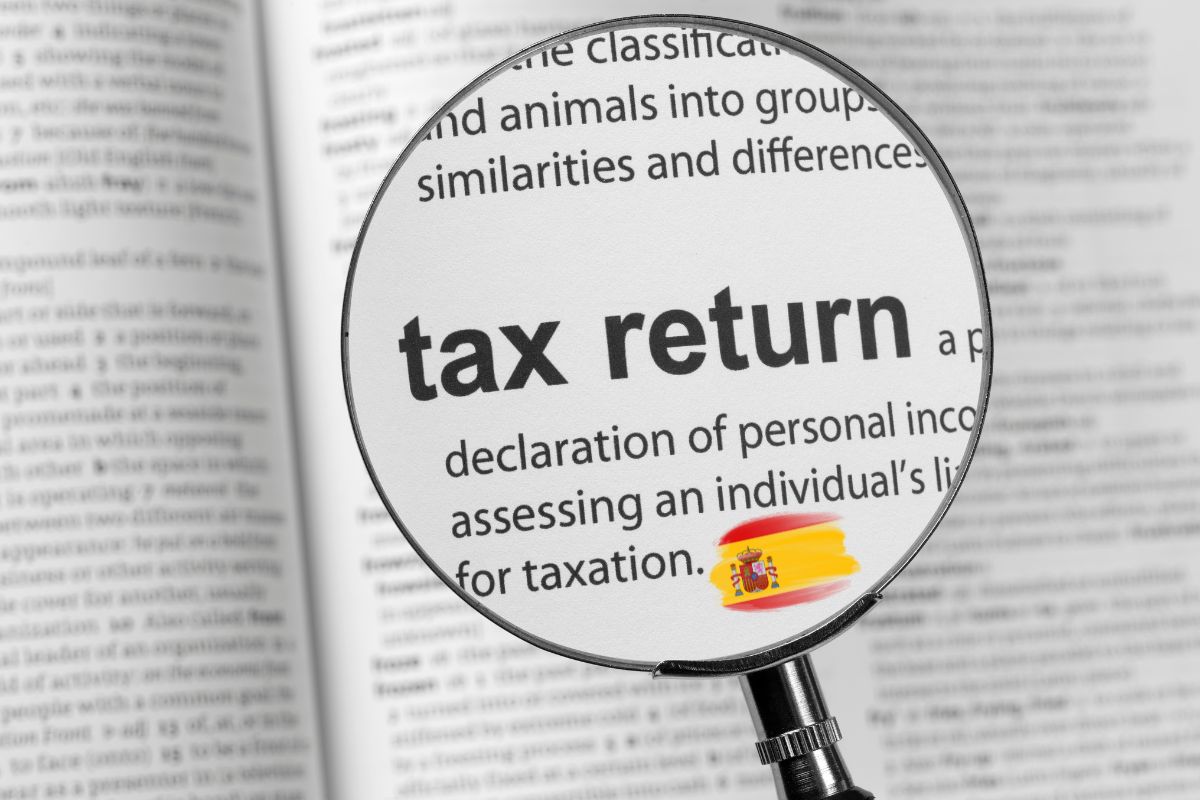
What can you do? Well, the process is threefold:
- Firstly, you have to contest the ruling and see proof of what they are finding you guilty of (e.g., incorrectly filing) and that they actually delivered the documents to you.
- Secondly, if you feel their ruling is incorrect, appeal against it explaining why.
- Thirdly, as the appeal will likely be unsuccessful you then go through an ‘arbitration’ process where your likelihood of winning is approximately 75% and above.
The bad news is this process normally takes between 3-5 years. If you win, you will receive your money back plus some interest. If you lose, the European courts are your last option.
My best advice for anyone to avoid this is:
- Make sure you are confident in the accountant you are using to reduce the chance of this happening.
- Always make sure your address on file at the tax office is up to date.
- Only keep in a Spanish bank account money you need to live on. The tax office cannot legally take money from bank accounts outside of Spain unless they go through a court process.
If this has happened to you feel free to get in touch – I can recommend a law firm/accountant that has experience in this field and has been successful. Alternatively, if you would also like a recommendation for an accountant that won’t make these mistakes (hopefully, in Spain it’s never 100%!) then again feel free to reach out.
Click here to read independent reviews on Chris and his advice.
Citizenship or Residency in Italy?
By Gareth Horsfall
This article is published on: 10th July 2023

Cittadinanza v Residenza – which to choose?
I decided to write this article because a number of people have asked me about the tax advantages of becoming an Italian citizen. My aim here is to give some clarification on the financial planning considerations if you are thinking about a permanent stay in Italy.
I opted for Cittadinanza as a result of Brexit. When my EU acquired rights were going to be stripped away from me I needed to make some decisions and for me cittadinanza was the right thing to do (with an Italian wife and child in Italian school, it seemed a no-brainer). Thankfully, as a resident in Italy married to an Italian my cittadinanza seemed to be right of passage rather than any decision that the preffetura took. I was lucky and I also managed to squeeze in before the language test was introduced…phew! (although I could pass that now).
If you are left wondering which option is best for you, I thought I would write this article to help lay out some facts. I hope it helps.
Cittadinanza and residenza
They are 2 very distinct definitions, often confused, but inherently connected from a legal and fiscal point of view.
As ‘stranieri’ living in Italy it is not unusual to get confused by some of the terminology regarding our legal status, and for Brit’s who were resident in Italy pre-Brexit, they now have additional legal implications which they have to deal with. For the rest of the non-EU world, you have probably been experiencing some of these issues that Brits are now facing. for some time, so you could probably tell us a thing or 2 about it.
The Universal Declaration of Human Rights 1948 states that every individual, in every part of the world, has a right to legal citizenship. No individual can be arbitarily stripped of their legal citizenship, nor of the right to change it.

What is cittadinanza?
Cittadinanza is simply defined as the condition of an individual belonging to a state with the rights and duties that this relationship entails; among which are political rights, i.e the right to vote and the possibility of holding public office, and the duty of loyalty to the state and the obligation to defend the state, within the limits and methods established by law.
Cittadinanza gives the individual the right to vote, access to public services, diplomatic protection and legal recognition. It can be acquired by birth (ius soli o ius sanguinis), by marriage or naturalisation and every country has it’s own different criteria for obtaining cittadinanza.
Advantages
Cittadinanza has some distinct advantages, such as the right to vote in national elections, unlimited travel with the passport, access to social and health services and protection by the government.
Requirements for application
In the case of Italy, a language test must be passed to level B1, declaration of prior residence in other countries is required, evidence that you don’t have a criminal record in other countries and income requirements etc. In addition, specific requirements may be needed depending on whether you are applying based on birth, marriage, or residency.
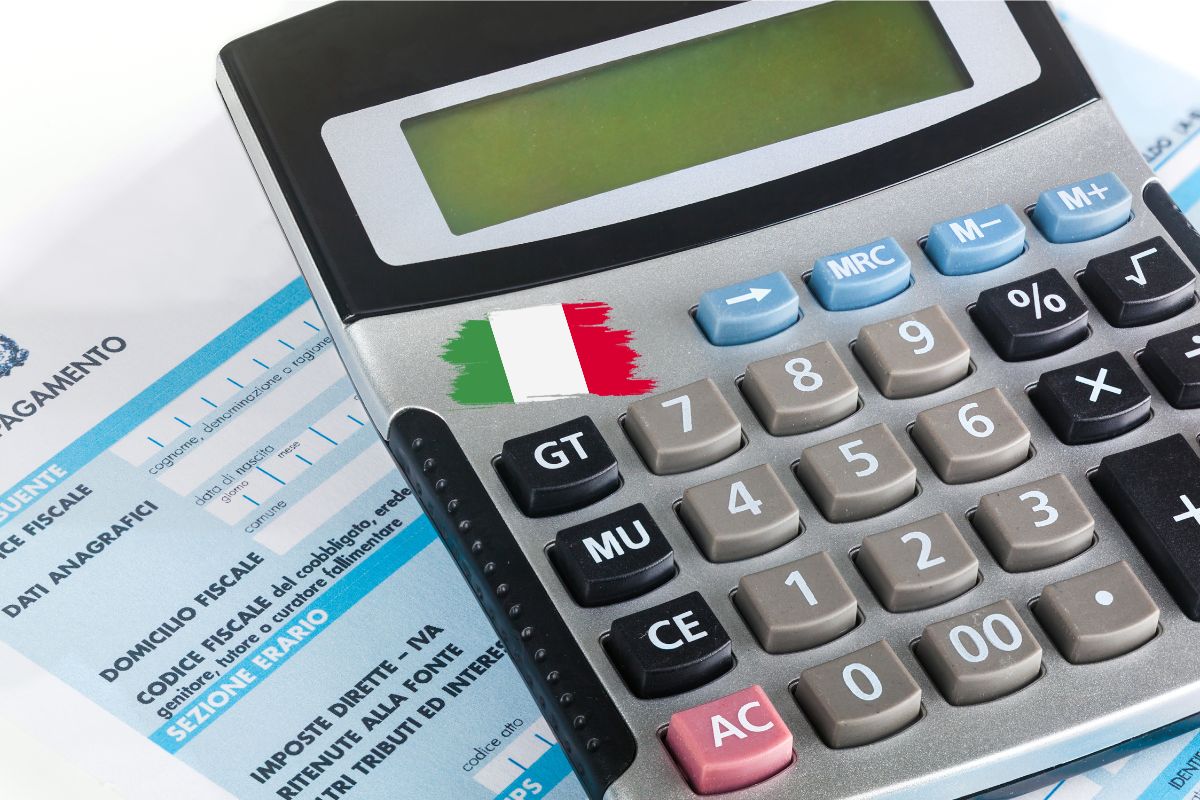
What about ‘residenza’? What is it?
Residence is the place that an individual is considered fiscally resident.
Residence determines the obligation to pay taxes in a specific state or jurisidction. Generally speaking it is based on the period of time that one spends in a country but is also determined by other factors such as whether you are registered in a specific country and whether it is your habitual abode i.e the place where you spend most of your time. (Read on for more details on this).
Residence refers to the legal status of an individual in a country and guarantees the right to live and work without citizenship. Residenza, in much the samw way as cittadinanza has a number of advantages, such as the right to access health care the option to work, buy property and make investments in Italy. Residenza can be temporary or permanent and the permesso di soggirono comes in various forms. To obtain residenza an individual must satisfy various documentary requisities, financial criteria and possibly language competency (not necessarily)
Quick note 1. I am frequently asked whether being registered at the Anagrafe constitutes fiscal residency. The answer, in the main is YES. There might be situations for business people, for example, who have interests in Italy and other countries and who require residenza anagrafica but not ‘fiscale’, for their business needs. However, for the majority of people who are coming to live and reside in Italy there will be no doubt that your fiscal residency is in the country if you meet just ‘ONE’ of the criteria below.
(**US citizens can transfer their residency to Italy but will have an obligation to report in the US as well. This creates numerous tax and financial planning issues and so should be planned carefully**)
Quick note 2. Is it possible to be a resident of nowhere because you travel extensively and do not spend more than 183 days a year in any one country? This is absolutely NOT possible! By definition, every individual must have a place of habitual residency whether you spend 183 days a year there or not. You cannot choose your residency status. It is a matter of fact!
Definition of residenza in Italy
You must remember that the definition of residenza in Italy is defined through the income tax code and therefore residenza and taxation are intrinsically connected. An individual is considered subject to taxation and fiscally resident for the majority of a tax period (calendar year) if they meet one or more of the following requirements:
1. You are registered at the anagrafe
2. You spend more than 183 days a year in Italy, i.e it is your habitual abode.
3. You are domiciled in Italy. (Your domicile , by Italian definition, being the place where you have established your main centre of business and/or personal and affairs.

Differences between cittadinanza and residenza
Whilst different concepts they do coincide with each other. As we have already established, cittadinanza determines your citizenship whereas residenza determines that you are fiscally required to pay taxes in Italy. You can be a citizen of Italy but also reside in another country and visa versa. The principle differences however, are as follows:
- Legal Status: Cittadinanza constitutes a legal and political status with certain rights specific duties. Residenza fiscale relates exclusively to the fiscal rules and regulations.
- Acquisition: Cittadinanza can be acquired through birth, marraige and naturalization rights, whereas ‘residenza fiscale’ is determined, principally, by how much time you spend, or are allowed to spend, in Italy
- Permanence: Cittadinanza is usually permanent unless it is revoked or voluntarily renounced, whereas residenza can change over time according to your personal and/or economic circumstances.
- Rights and privileges: Cittadinanza offers certain rights, as discussed above, whereas residenza merely affects your tax obligations, tax benefits and residency rights in Italy.

Does your tax position change if you obtain cittadinanza
This is a particularly pertinent question for Brits who lost their EU national status as a result of Brexit but which is also interesting to other nationalities who decide to live in Italy, and who may also want to obtain cittadinanza.
The simple answer is that your fiscal tax status will NOT change as a result of moving from residenza to cittadinanza. However, there are cases, which vary from country to country and therefore you will need to either refer to the double taxation treaty yourself or get a professional to look for you.
In general the main fiscal difference between cittadinanza and residenza is regarding government derived pensions (pensions paid by the state, which you worked for, and are directly linked to the type of employment i.e teachers, military, police, health care professionals from a public setting). If you are receiving a pension from a government derived service then with residenza it will normally be taxed ONLY in the state in which the pension is being paid. However, if you obtain cittadinanza then the same pension could become subject to taxation in Italy as well. Double taxation issues are dealt with in the double taxation treaty, but it may mean you end up paying more taxation in Italy on the same pension than you would be in your home country.
***Government service pensions are NOT social security or state pension payments***
State pensions and social security payments are, in nearly all cases, taxable as a fiscal resident in Italy. (Commercialisti often misunderstand these and assume they are government derived pensions from employment, as described above. They are not!

When to move to Italy and register on the anagrafe
Knowing when to move can also make the difference between paying taxes in Italy in the year you move and paying them after the next fiscal year.
If you register after July 3rd then under the 183 day rule you will not be considered fiscally tax resident in Italy until the following full calendar year (only Italian sourced income will be taxable from the point of payment). Conversely, if you do register as resident before July 3rd in any year, then you will be considered fiscally resident for the ‘whole’ calendar year.
But don’t make the following mistake that I have seen many times:
If you make a request for residence before July 3rd and let’s say you don’t have all your documentation, so you delay the application until after July 3rd. Once everything is submitted and residenza is granted, it will be back dated to the original request. This might mean you are now considered fiscally resident for the whole tax year. Therefore, benefitting from the July 3rd rule means that you MUST NOT apply for residency before this date!
The period from July 3rd to Dec 31st is a HUGE financial planning opportunity because you potentially have the tax jurisdiction in which you are currently living to take advantage of and replan your finances for a tax efficient life in Italy. One simple move might be to sell some assets to benefit from capital gans tax reliefs that Italy does not have. Pre-planning and discussion is essential. When people contact me about a move to Italy, my first question is what date are you planning on registering, and is it flexible? It gives you time and opportunities, which could make a big financial difference.
Better the money in your pocket than in the Italian tax mans pocket!


